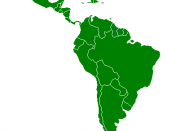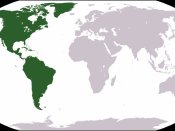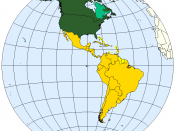The èrulesè of international trade were written long ago, and although there are valuable lessons to be learned from the way that the Greeks and Romans established trade routes that took them halfway around the world, our modern concept of international commerce really began at the end middle ages. As shipbuilding and navigational technology improved it was only a question of time as to when the new European states would start to venture forth unto the world in search of riches. With the dawn of the èAge of Explorationè set in motion by Cristobal Colón's (aka Cristopher Columbus) landmark discovery of the Americas, the age of globalization began. All of the learning objectives in this first portion of the course are clearly illustrated in the way that the colonial economies developed, and I think that it is an important starting place in order to really understand how International Commerce functions operates.
Latin American economic history for over three hundred years from the time of Columbus up until independence in the early part of the 19th century was fairly consistent in terms of the role each of the major parties played: Latin America provided raw materials to Spain/Portugal, and then purchased and consumed the finished goods which were sold to them via the Colonial Government's trade monopoly. For all intents and purposes this is the exact same system which was used by all of the European nations in regards to their colonies: France in the America's and later in Africa, Holland in the Americas and in the Far East, England with their colonial possessions, etc. In all cases the èmotherè country established restrictions on trade which severely limited their colonies ability to grow economically. This entire model was based on the concept of èmercantilism/bullionismè, the idea that a country's wealth...


